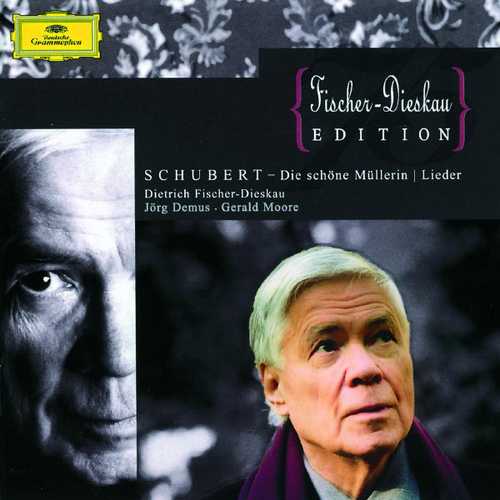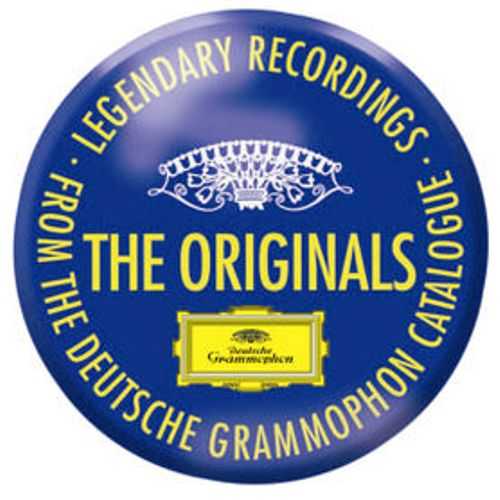
Composer: Franz Peter Schubert
Performer: Dietrich Fischer-Dieskau, Jörg Demus, Gerald Moore
Format: FLAC (tracks)
Label: Deutsche Grammophon
Catalogue: E4635022
Release: 2000
Size: 322 MB
Recovery: +3%
Scan: cover
Die schöne Müllerin, D795
01. 1. Das Wandern
02. 2. Wohin?
03. 3. Halt!
04. 4. Danksagung an den Bach
05. 5. Am Feierabend
06. 6. Der Neugierige
07. 7. Ungeduld
08. 8. Morgengruß
09. 9. Der Müllers Blumen
10. 10. Tränenregen
11. 11. Mein!
12. 12. Pause
13. 13. Mit dem grünen Lautenbande
14. 14. Der Jäger
15. 15. Eifersucht und Stolz
16. 16. Die liebe Farbe
17. 17. Die böse Farbe
18. 18. Trockne Blumen
19. 19. Der Müller und der Bach
20. 20. Des Baches Wiegenlied
21. Nacht und Träume, D827
22. Ständchen ‘Horch! Horch! die Lerch!’, D889
23. Du bist die Ruh D776 (Rückert)
Erlkönig, D328
24. Wer reitet so spät
You wouldn’t think that a recording by Fischer- Dieskau, given his huge Schubert discography, could still offer an exciting revelation – but that’s what the ‘new’ Die schöne Müllerin recording offers. Explanations for its suppression vary. The singer seems to think it has something to do with its technical quality: the booklet-note, slightly more credibly, tells us that it was planned before DG decided to include the cycle in its ‘complete’ Schubert with the baritone and Gerald Moore, which caused this performance to be put on the back burner. Now we can enjoy a reading that’s absolutely spontaneous, daring in its dramatic effects – bold extremes of dynamics, for instance – and full of even more subtle detail than in Fischer-Dieskau’s other recordings.
This approach owes not a little to Demus’s piano. As Alan Newcombe says in his notes: ‘Aided by Demus’s lightly pedalled, often almost brusque staccato articulation, the result is starker, more elemental, less comfortable [than the reading with Moore], conceived on a larger scale.’ To that one should add that the singer is at the absolute height of his powers; tone, line, breath control and intuitive imagination are most remarkable in the strophic songs that, in lesser hands, can seem over-long. Another feature of this is the significant underlining he gives to pertinent words. For instance, in Pause note how ‘gehängt’, ‘durchschauert’ and ‘Nachklang’ receive this treatment. It’s this unique vision of the German language in music that still marks out this baritone from his many successors.
Immediate, unvarnished sound heightens the value of this extraordinary performance.



